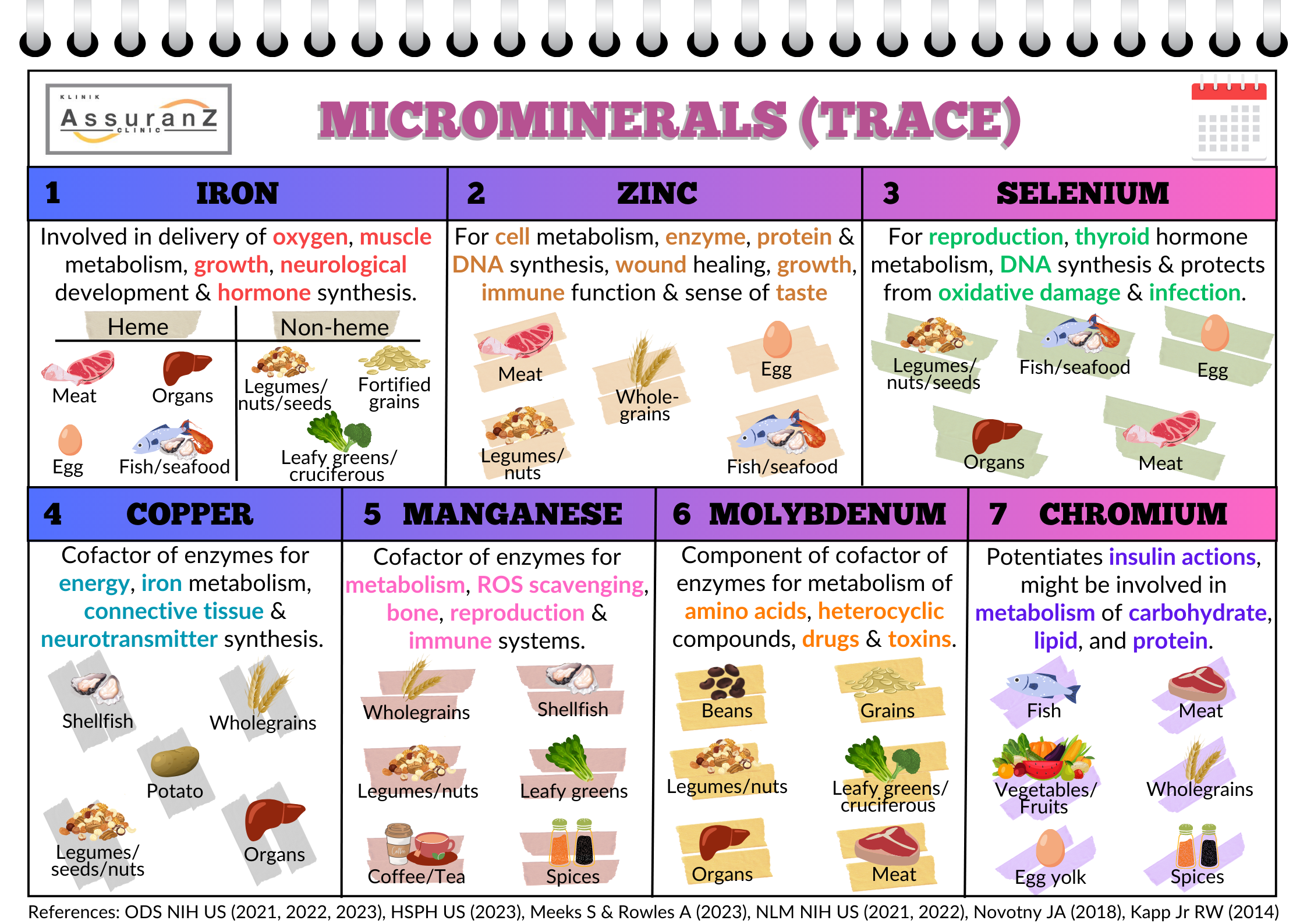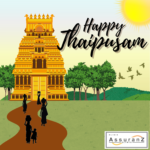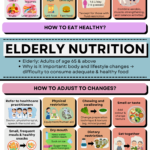Trace minerals are equally as important as major minerals but are needed in a smaller amount, which is lower than 100 mg/day. There are a variety of microminerals, which include (and not limited to) iron, zinc, iodine, selenium, copper, manganese, chromium, and molybdenum.
微量矿物质与主要矿物质同样重要,但需要量较少,低于100毫克一天。微量矿物质有很多种,包括(但不限于)铁、锌、碘、硒、铜、锰、铬和钼。
- Iron / 铁
Iron is a component of haemoglobin in red blood cells, functions to deliver oxygen to the tissues. It is also a component of myoglobin in muscles responsible for oxygen delivery, muscle metabolism and healthy connective tissues. Iron is crucial for physical growth, neurological development, cellular function, and hormonal synthesis. Iron can be obtained in two forms, heme iron (animals) and non-heme iron (plants). Sources of heme iron includes lean meat, fish, organs, and seafood. Non-heme iron sources are nuts, beans, vegetables (leafy greens) and fortified grains. Heme iron is more easily absorbed. Non-heme iron absorption can be increased through consumption with high vitamin C food and heme iron sources. Some plant components such as phytate and polyphenols, and calcium inhibits iron absorption. Iron deficiency causes fatigue, difficulty concentrating, anaemia, impaired cognitive and immune function. Iron overload is rare in normal population. Excessive supplementation can reduce zinc absorption and cause gastrointestinal effects such as nausea. Even higher doses can cause intestinal necrosis. In individuals with medical conditions such as hemochromatosis, iron overload can happen. Without treatment, this can cause liver disease, heart disease and impaired pancreatic function.
铁是红细胞中血红蛋白的组成部分,其功能是将氧气输送到人体组织。它也是肌肉中负责氧气输送、肌肉新陈代谢和健康结缔组织的肌红蛋白的组成成分。铁对于身体生长、神经发育、细胞功能和激素合成至关重要。铁可以通过两种形式获得:血红素铁(动物)和非血红素铁(植物)。血红素铁的来源包括瘦肉、鱼、内脏和海鲜。非血红素铁来源包括坚果、豆类、蔬菜(绿叶蔬菜)和强化谷物。血红素铁更容易被吸收。通过食用高维生素C的食物和血红素铁源可以增加非血红素铁的吸收。一些植物成分如植酸盐和多酚以及钙会抑制铁的吸收。缺铁会导致疲劳、注意力不集中、贫血、认知和免疫功能受损。铁超载在正常人群中很少见。过量补充会减少锌的吸收并引起恶心等胃肠道反应。甚至更高剂量也会导致肠坏死。对于患有血色病等疾病的个体,可能会发生铁过载。如果不进行治疗,可能会导致肝病、心脏病和胰腺功能受损。
- Zinc / 锌
Zinc is required for cellular metabolism, enzyme activities, protein and DNA synthesis, and wound healing. It also enhances immune function, supports normal growth and development, and is involved in the sense of taste. Zinc can be obtained from meat, fish, seafood, eggs, and dairy products. Zinc is also found in beans, nuts, and whole grains but the absorption is lower due to phytate content in plants. Zinc deficiency affects many different tissue and organs as it has a variety of functions. It can affect skin, bones, digestion, reproduction, immune and central nervous system. Zinc deficiency can affect senses of taste and smell, causes growth delay, frequent infection, impaired wound healing, changes in cognitive and psychological function. Zinc toxicity leads to nausea, dizziness, headache, gastric distress, and loss of appetite. Excessive zinc use leads to low magnesium and copper absorption, reduced immune function and low HDL-cholesterol level (good cholesterol).
锌是细胞代谢、酶活性、蛋白质和脱氧核糖核酸(DNA)合成以及伤口愈合所必需的物质。它还增强免疫功能,支持正常生长和发育,并会影响味觉的敏感度。锌可以从肉、鱼、海鲜、鸡蛋和乳制品中获取。豆类、坚果和全谷物中也含有锌,但由于植物中含有植酸,吸收率较低。缺锌会影响许多不同的组织和器官,因为它具有多种功能。它会影响皮肤、骨骼、消化、生殖、免疫和中枢神经系统。缺锌会影响味觉和嗅觉不灵敏,导致生长迟缓、频繁感染、伤口愈合受损、认知和心理功能改变。锌中毒会导致恶心、头晕、头痛、胃部不适和食欲不振。过量使用锌会导致镁和铜的吸收率降低、免疫功能降低以及高密度脂蛋白胆固醇(好胆固醇)水平降低。
- Selenium / 硒
Selenium plays critical roles in reproduction, thyroid hormone metabolism, DNA synthesis and protection from oxidative damage and infection. Selenium is rich in Brazil nuts, seafood, fish and organ meats, but can also be found in other legumes, nuts, seeds, lean meat, cereals, grains, dairy products and egg. Vegetables also contain selenium, but the amount depends on the soil mineral content. Selenium deficiency is rare but can happen in people fed through long term total parenteral nutrition (TPN, intravenously). Keshan disease (abnormality of the heart muscle), Kashin-Beck disease (joint and bone disease) is associated with lack of selenium. Excessive selenium is uncommon, but can cause selenosis, leading to symptoms such as hair loss, nail problem, nausea, irritability, fatigue, and mild nerve damage.
硒在生殖、甲状腺激素代谢、脱氧核糖核酸(DNA)合成以及防止氧化损伤和感染方面发挥着关键作用。硒富含于巴西坚果、海鲜、鱼类和内脏中,但也存在于其他豆类、坚果、种子、瘦肉、谷物、乳制品和鸡蛋中。蔬菜也含有硒,但含量取决于土壤矿物质的含量。硒缺乏很少见,但长期全肠外营养(TPN,静脉注射)喂养的人可能会发生缺硒。克山病(心肌异常)、大骨节病(关节和骨骼疾病)与缺硒有关。硒过量并不常见,但会引起硒中毒,导致脱发、指甲问题、恶心、烦躁、疲劳和轻度神经损伤等症状。
- Copper / 铜
Copper is cofactor for multiple enzymes responsible for energy production, iron metabolism, connective tissue synthesis and neurotransmitter synthesis. Copper also aids in other physiological processes such as brain development, pigmentation, and immune system. Copper is abundant in shellfish, seeds, nuts, organ meats, wheat-bran, wholegrain, bean and potatoes. Other sources include dark leafy greens, dried fruits, and cocoa. Copper deficiency is not common in humans, but studies showed it can lead to anaemia, lack of pigmentation, high cholesterol level, abnormal fat metabolism, connective tissue disorder, weakened bone and increased infection risk. Copper toxicity is rare. However, people with Wilson’s disease who are at risk of copper toxicity, or exposure to high level of copper in long term (such as copper in stagnant water or household plumbing) can cause liver damage, gastrointestinal symptoms such as diarrhoea, brain, and other organ damage.
铜是多种酶的辅助因子,负责能量产生、铁代谢、结缔组织合成和神经递质合成。铜还有助于其他生理过程,例如大脑发育、色素沉淀和增强免疫系统。贝类、种子、坚果、内脏、麦麸、全麦、豆类和土豆中富含铜。其他来源包括深色绿叶蔬菜、干果和可可。铜缺乏症在人类中并不常见,但研究显示,它会导致贫血、色素缺乏、高胆固醇、脂肪代谢异常、结缔组织紊乱、骨质疏松和感染风险增加。铜中毒很少见。然而,患有威尔逊氏病的人如果有铜中毒的风险,或长期接触高浓度的铜(例如死水或家庭管道中的铜),可能会导致肝损伤、腹泻等胃肠道症状、大脑和其他器官损伤。
- Manganese / 锰
Manganese is a cofactor of various enzymes involved in amino acid, cholesterol, glucose and carbohydrate metabolism, reactive oxygen species scavenging, bone formation, reproduction, and immune response. Manganese also works with vitamin K to aid in blood clotting and haemostasis. Manganese can be found in many foods including wholegrains, shellfish, nuts, legumes, rice, leafy vegetables, coffee, tea, and spices. Manganese deficiency is very seldomly seen, and signs and symptoms of deficiency have yet to be established firmly. Limited evidence suggests that deficiency might cause bone problem and poor growth in children. It might also alter lipid and carbohydrate metabolism and cause abnormal glucose tolerance. No evidence on toxicity through dietary intake has been observed, but toxicity through water containing high magnesium or high occupational exposure can affect central nervous system, leading to neuromotor impairment such as tremors, muscle spasm, balance problem et cetera. Other symptoms include psychological problem such as mania and depression, headache, irritability, and mood changes.
锰是多种酶的辅助因子,涉及氨基酸、胆固醇、葡萄糖和碳水化合物代谢、活性氧清除、骨骼形成、繁殖和免疫反应。锰还与维生素K一起发挥作用,有助于血液凝固和止血。许多食物中都含有锰,包括全麦、贝类、坚果、豆类、大米、叶类蔬菜、咖啡、茶和香料。锰缺乏症很少见,缺乏的迹象和症状尚未明确。有限的证据显示,缺乏维生素可能会导致骨骼问题和儿童生长不良。它还可能改变脂质和碳水化合物代谢并导致葡萄糖耐量异常。目前尚未观察到在饮食摄入含高锰会产生毒性的证据,但含高镁水或高职业接触的毒性会影响中枢神经系统,导致神经运动障碍,如震颤、肌肉痉挛、平衡等问题。其他症状包括心理问题,如躁狂和抑郁、头痛、烦躁和情绪变化。
- Molybdenum / 钼
Molybdenum is a component of cofactor for some enzymes responsible for metabolism of sulphur-containing amino acids, heterocyclic compounds such as purines, drugs and toxins. Beans contain high amount of molybdenum. Other sources are grains, nuts, some dark leafy greens, certain cruciferous vegetables, pork, lamb and beef liver. Eggs, seeds, lentils and dairy products also contain molybdenum. The content of molybdenum depends on soil mineral content (directly from plant or from animal consuming molybdenum-containing plant). No known groups of people are likely to have inadequate molybdenum intake. Toxicity is rare but can occur in occupational exposure. Effects include achy joints, gout-like symptoms, and high uric acid.
钼是一些负责含硫氨基酸、杂环化合物(如嘌呤)、药物和毒素代谢的酶的辅因子成分。豆类含有大量的钼。其他来源包括谷物、坚果、一些深色绿叶蔬菜、某些十字花科蔬菜、猪肉、羊肉和牛肝。鸡蛋、种子、扁豆和乳制品也含有钼。钼的含量取决于土壤矿物质含量(直接来自植物或来自食用含钼植物的动物)。没有人可能钼摄入量不足。它的毒性很少见,但可能在职业接触中发生。它的影响包括关节疼痛、痛风样症状和高尿酸。
- Chromium / 铬
Chromium potentiates insulin actions, thus might be involved in metabolism of carbohydrate, lipid, and protein. It also might have antioxidant effects. Chromium is present in small amount in a wide variety of foods including meats, fish, wholegrains, certain vegetables and fruits, egg yolk, nuts, spices, beer and wine, and the amount depends on the mineral soil content. Dairy products and high sugary foods are low in chromium. Deficiency does not occur in normal population, but past studies in long term TPN patients showed adverse metabolic and neurological effects such as hyperglycaemia, unexplained weight loss and peripheral neuropathy. Chromium toxicity also rarely occurs, but isolated case reports showed that excessive chromium supplementation might cause weight loss, anaemia, liver and renal failure, dermatitis, and hypoglycaemia.
铬可增强胰岛素作用,因此可能参与碳水化合物、脂质和蛋白质的代谢。它还可能具有抗氧化作用。铬少量存在于多种食物中,包括肉类、鱼类、全谷物、某些蔬菜和水果、蛋黄、坚果、香料、啤酒和葡萄酒,其含量取决于矿质土壤的含量。乳制品和高糖食品的铬含量较低。正常人群中不会出现缺乏症,但过去对长期全肠外营养(TPN) 患者的研究表明,会出现不良的代谢和神经系统影响,如高血糖、不明原因的体重减轻和周围神经病变。铬中毒也很少发生,但个别病例报告表明,过量补充铬可能导致体重减轻、贫血、肝肾衰竭、皮炎和低血糖。
Other microminerals not discussed is generally considered nonessential as there is no definite biochemical function in humans and the lack of these elements has not been proven to interrupt the cycle of life.
未讨论的其他微量矿物质通常被认为是非必需的,因为在人体中没有明确的生化功能,并且尚未证明缺乏这些元素会中断生命周期。
Through incorporation of balanced diet with variety of healthful food, the general population can achieve adequate mineral intake. Except for some minerals like iron, iodine, zinc and calcium, mineral deficiencies normally do not develop spontaneously in adults with normal dietary intake. Infants are more susceptible to this due to rapid growth and changes in dietary intake. Certain conditions such as hereditary disorders, parenteral nutrition, and restrictive diet due to congenital disorders et cetera can also cause mineral imbalance. Minerals toxicity rarely occurs, but can happen in individuals taking multivitamin/minerals, especially when the person takes more than the prescribed doses in products that provides 100 percent of the daily value of nutrients.
通过均衡饮食和各种健康食品的结合,一般人可以达到足够的矿物质摄入量。除了铁、碘、锌和钙等一些矿物质外,正常饮食摄入的成年人通常不会自发缺乏矿物质。由于快速生长和饮食摄入量的变化,婴儿更容易受到这种情况的影响。某些疾病,如遗传性疾病、肠外营养和先天性疾病导致的限制性饮食等也可能导致矿物质失衡。矿物质中毒很少发生,但在服用多种维生素/矿物质的个体中可能会发生,特别是当人们服用的产品可提供100%每日营养价值的剂量超过规定的剂量。
Mineral requirement varies in specific populations. In cases such as pregnancy, breastfeeding and anaemia, individuals will need to consume more of some of the minerals and supplementation might be prescribed. On the other hand, patients with conditions such as kidney disease and thalassemia might have to limit some minerals due to abnormal absorption or inability to remove excess minerals. Therefore, it is best to consult with your healthcare professionals before incorporating any changes to your diet.
特定人群的矿物质需求量有所不同。在怀孕、母乳喂养和贫血等情况下,他们需要摄入更多的矿物质,并且可能需要服用补充剂。另一方面,患有肾病和地中海贫血等疾病的患者可能由于吸收异常或无法去除多余的矿物质而必须限制某些矿物质的摄入。因此,在对饮食进行任何改变之前,最好咨询您的医疗保健专业人员。






